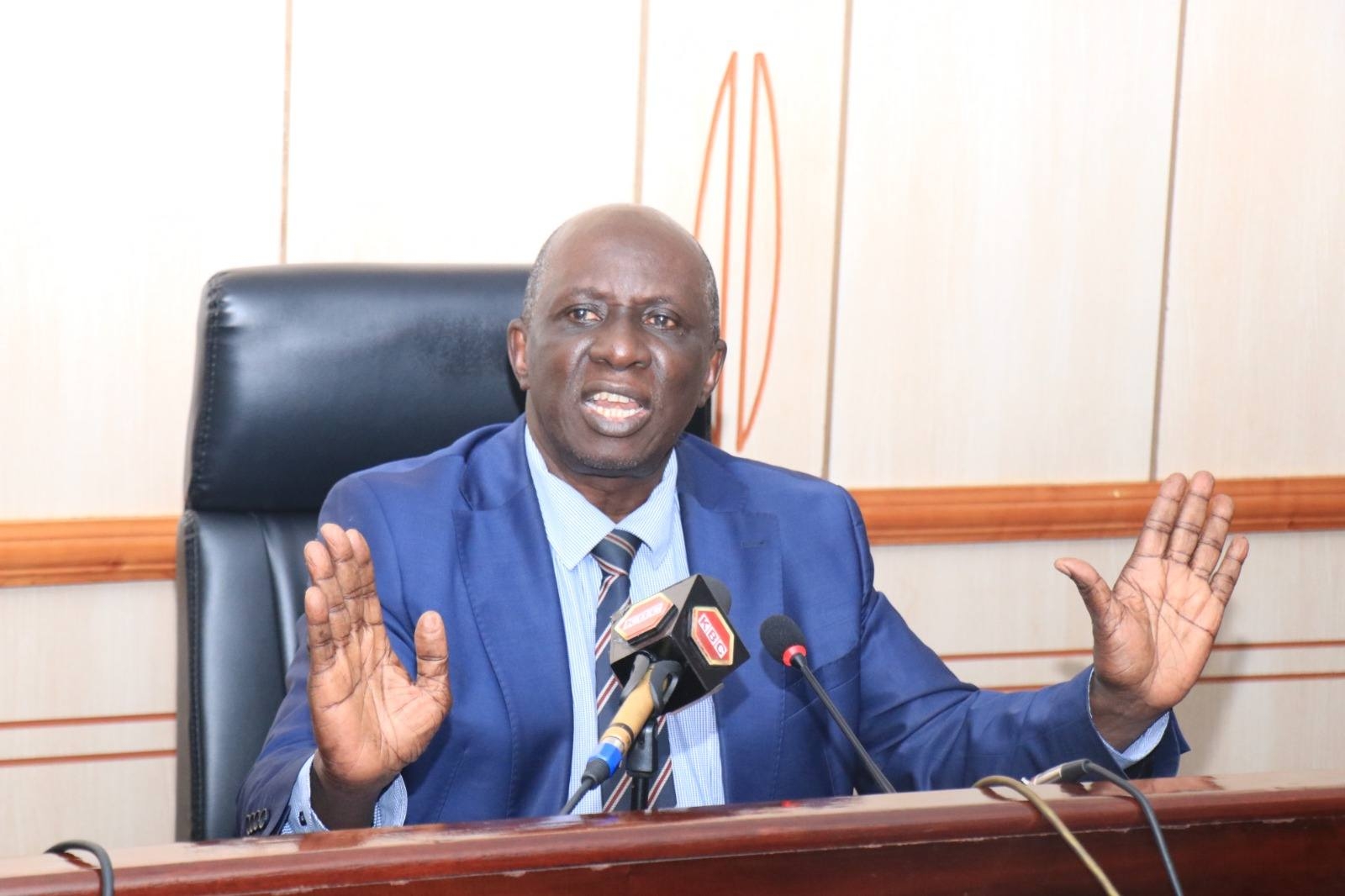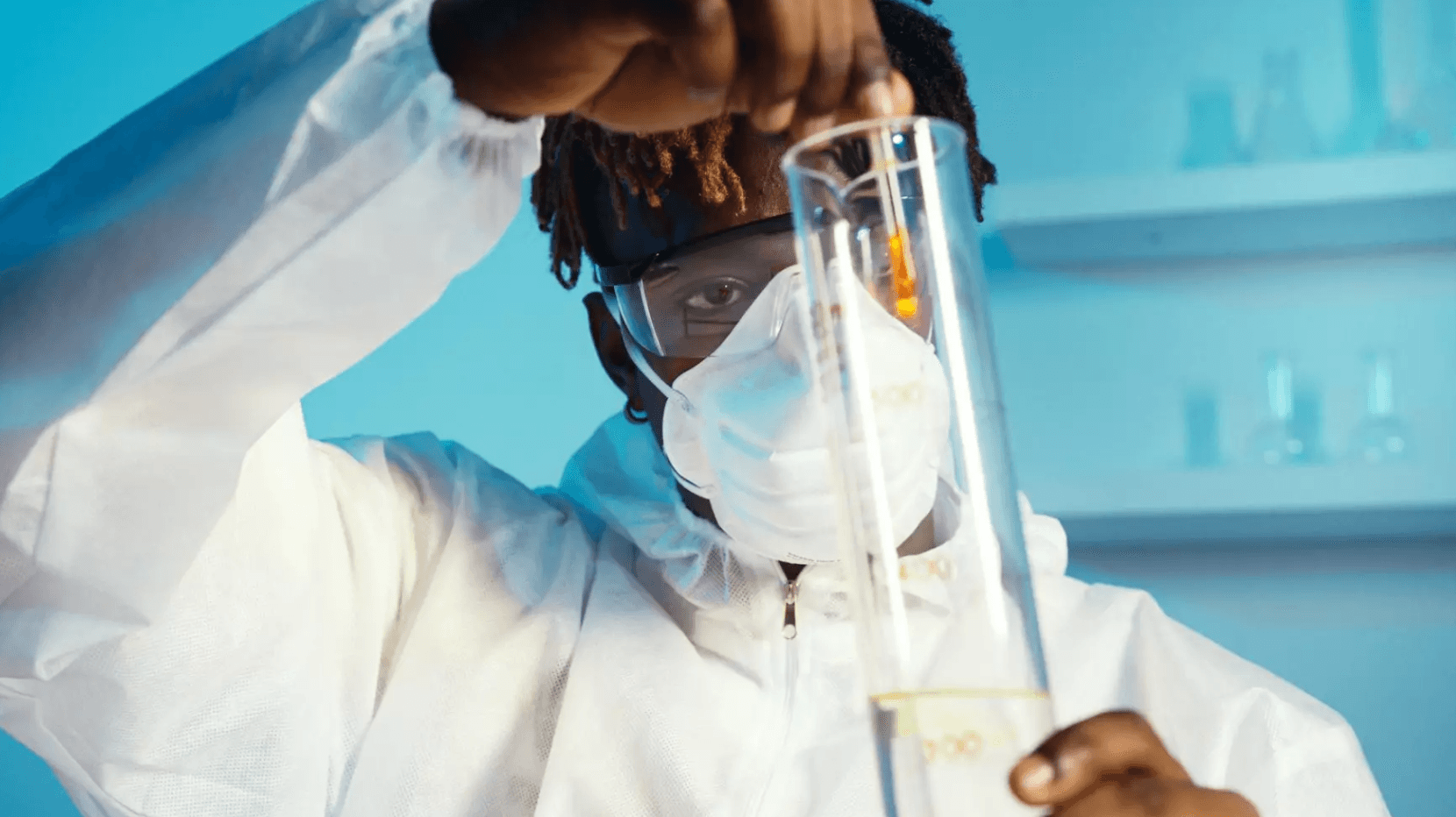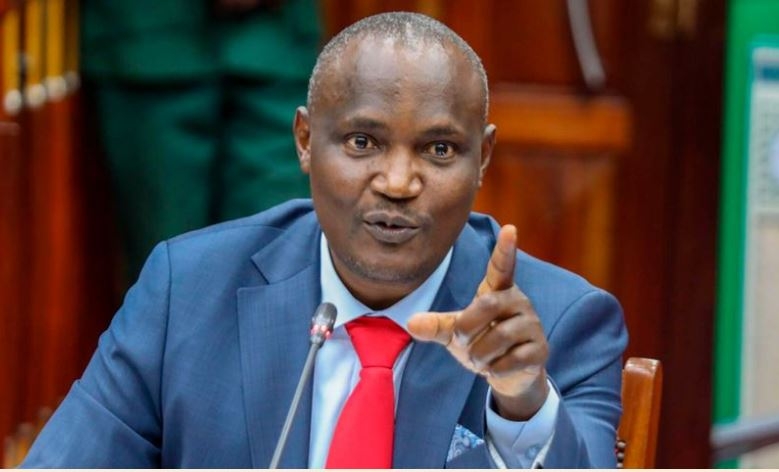Kenya expects to receive 4.1 million doses of the AstraZeneca Covid-19 vaccine anytime from next week. This will be through the Covax Facility supported by partners including the World Health Organisation, Gavi, Unicef and the Bill & Melinda Gates Foundation.
Bill Gates praises Kenya’s strong Covid-19 guidelines, which he believes will contribute greatly to ending the pandemic. But the vaccine is the best shot at a normal life, he says.
The Bill and Melinda Gates Foundation has so far given $1.75 billion to fight the pandemic.
Bill fielded questions from Africa’s health journalists, including Star’s John Muchangi.
The Star: You've talked before about the dangers of a vaccine grab, and yet this is exactly what we're seeing unfold. Could you share your thoughts on the impact vaccine nationalism is going to have on Africa and what kind of trajectory you'd like to see with the coronavirus pandemic?
Bill Gates: Well, the key for the vaccines is getting more approved and getting more factories into production.
A lot of the work that the foundation has done is to back a variety of vaccines. Back in 2015 in my TED talk, I talked about the risk of a pandemic and how we weren't prepared. At that time, not much was done.
The foundation, Wellcome Trust, the UK, Japan and Norway did create a group called CEPI (Coalition for Epidemic Preparedness Innovations), which has helped a lot with a number of these vaccines.
With medicines, we always have this challenge with the big markets; the sales opportunities are in the rich countries. That's why for diseases like HIV or malaria, the foundation reaches out to these companies and says, “We need to have some equitable approach.”
The first two vaccines that were approved are fairly costly to make and hard to scale up. They're very good vaccines, Pfizer and Moderna, but it's the next three, including AstraZeneca, Johnson & Johnson and Novavax, that will give us the highest volumes, the ease of scaling and the thermal stability.
And so we're hopeful that — particularly with some factories in India that the foundation has helped to finance, which have larger factories than the factories in the West — that within the next few months, a large number of doses will come out of there and be targeted almost entirely to the developing world, which is the goal of what we call Covax.
It's a dynamic situation. I've been talking with governments and companies about this going back to last March, and so we have a chance here to get a lot of vaccines.
In Africa, the epidemic itself in a direct sense has been the worst in South Africa. The rest of Africa, with a few exceptions, hasn't been super bad. But of course, the economic effects are there and any life that's lost is really terrible.
So we need to first get the 20 per cent coverage, and then move to 70 per cent, 80 per cent coverage, and I'd say the foundation is at the forefront of that, but it’s still unclear how well all these efforts will go.
I had my first dose last week. There are very, very few side-effects, and it is protecting people. In fact, almost no one who has been vaccinated has had severe disease, which is really quite miraculous
The Economist last December projected that the vaccine will be widely available in Africa in 2022 or 2023. What can be done to improve immediate supply?
Well, the agreement we have with India is that those factories, at least half the capacity, will be dedicated to supply, through Gavi, to Africa and other developing countries.
Every day, of course, we're trying to speed this up. The history of vaccines is that, until Gavi was created in 2000, the really key vaccines for saving literally millions of lives were not cheap enough for the poor countries, and the coverage levels were very low.
And so Gavi deserves more visibility for what it did, funded by many governments and our foundation, to get diarrhoea vaccines and pneumonia vaccines into all the children in the world.
And so the Gavi approach, where Gavi buys the vaccines at the very lowest price with that donor money, has worked very well. That's why, since 2000, deaths of children under five in the world at large have been cut by half. It’s an even higher percentage if you just focus on Africa.
So, we have that success story. Gavi had a hard time getting money from the United States, until recently, which was fairly key, so both Melinda and I were working on that.
We were successful in getting a $4 billion allocation for Gavi. In the meantime, we were giving money to get these factories already.
What would you have to say to those who are skeptical about taking any vaccine? This is, of course, amid the spread of misinformation about both the coronavirus and vaccine development.
For people who care about childhood death, vaccines are the best thing that ever happened. Smallpox killed over a million people a year, and because of vaccines, now smallpox is gone.
The miracle of vaccines is very clear. When a child dies, that's a very clear thing. We have very good statistics on what that was like before we got these new vaccines. Over 10 million children were dying under the age of five every year, with a high portion of those being in Africa.
The more people learn about vaccines, the more amazed they should be about how fantastic they are. As I said, the safety issues are challenging. You do need to go through the trials, you do need to use extremely well-regulated factories.
A factory can only be built in a country whose regulator is a gold standard regulator and can look at every aspect of that factory, making sure it’s very, very good. There are very few countries that have that safety review capacity that the world trusts.
We are now getting the experience with these coronavirus vaccines. I had my first dose last week. There are very, very few side-effects, and it is protecting people. In fact, almost no one who has been vaccinated has had severe disease, which is really quite miraculous.
I hope people will read the facts about vaccines and how they’ve worked against other diseases, and see that now we have millions and millions of people who've taken this vaccine and we're tracking that experience to make sure we were right about the overall safety. It is going to be a tragedy if a country continues to have an epidemic because of these false vaccine rumours.
Do you support calls led by India and South Africa (and backed by Kenya) at the World Trade Organisation, to suspend intellectual property rights for Covid-19 vaccines?
Well, the key question is, what would make more vaccines become available? If you're going to try and tell people to take these vaccines, which are extremely difficult to make — these are biological processes where even the very best companies sometimes have bad failures and contamination.
Right now, only by using vaccine companies that have the right expertise are we able to make these. You know, there is no royalty, so as these Indian companies like Serum and BioE (India's Biological E Limited ) are getting the rights to make these vaccines, because of the money that the foundation has put forward and because these companies are not trying to make money on these vaccines — they've been given without any royalty whatsoever.
So, the only limiting factor is getting the regulatory approval for the new factory to make sure it's absolutely right and then ramping up that production in that factory.
And so, you know, although there's lots of issues about intellectual property, at this point, changing the rules wouldn't make any additional vaccines available. We're going to every factory we can and getting zero royalty access for ramping up that manufacture.
Other vaccinations and immunisations for the regular childhood diseases have been overtaken by the events of Covid-19. What do you think should be done to catch up on the children who may have missed their vaccinations when our focus has been on the pandemic?
If you take sub-Saharan Africa, and you leave out South Africa, the additional deaths over the last year will be a lot more that come from the reduction in vaccine coverage of the typical vaccines like measles or rotavirus vaccine.
And then there will be from Covid disease, so it's definitely a tragedy that those coverage levels have gone down. In fact, they've gone down to a level that we last saw about 20 years ago. We need to get those primary health care vaccine delivery systems for routine immunisation back functioning again.
And that requires political leadership. Mostly politicians don't think about vaccine coverage in the primary health care system. But we need their support to get real focus on what is the data, which parts of the country have fallen behind, how do you do these catch-up campaigns?
Some countries are talking about cutting back their foreign aid, which is unfortunate, but we'll do our best to make sure the moral interests of the voters in those countries argue for not just maintaining but increasing that aid.
Likewise, in Africa itself, these health issues deserve a lot more attention. The press looking at those figures and highlighting them, I think may be a helpful factor in driving action, but we need to catch up on all those key vaccines, even things like the measles campaigns.
We still have a type of polio virus that we're still working on, and I've been talking to leaders about how we get those campaigns back underway again.
Edited by T Jalio












